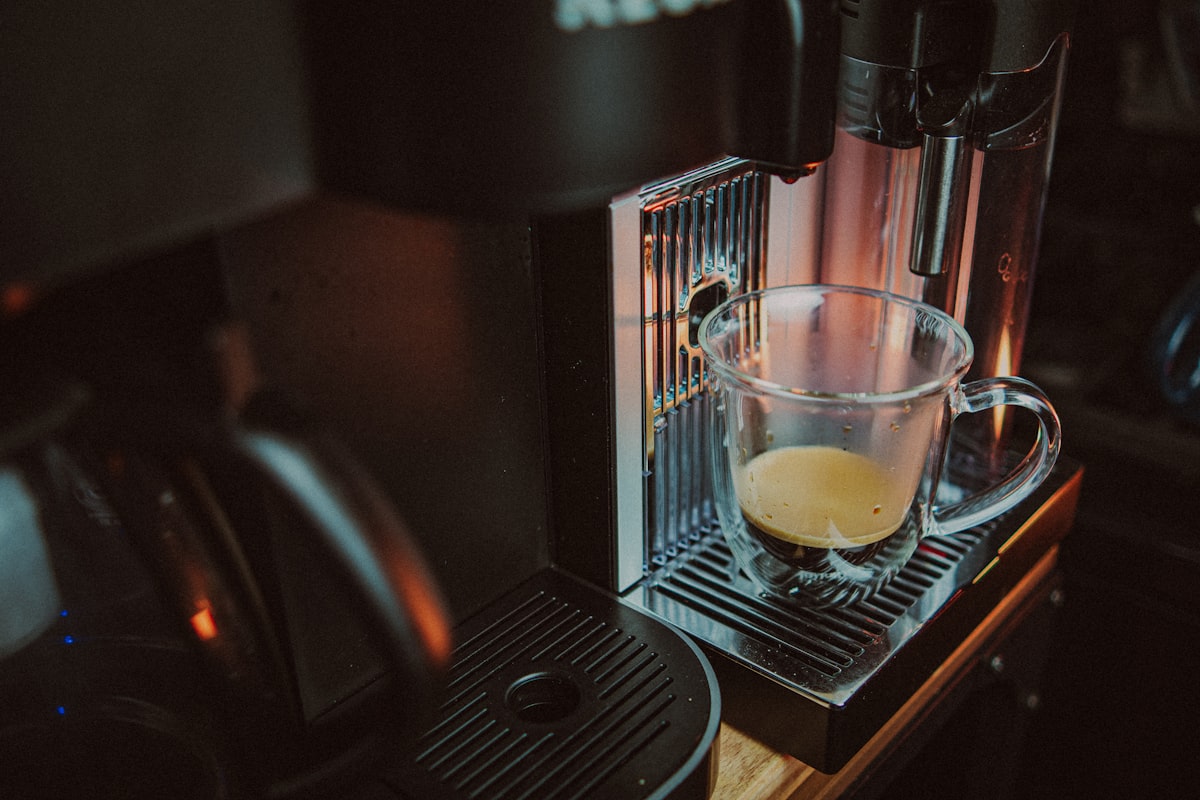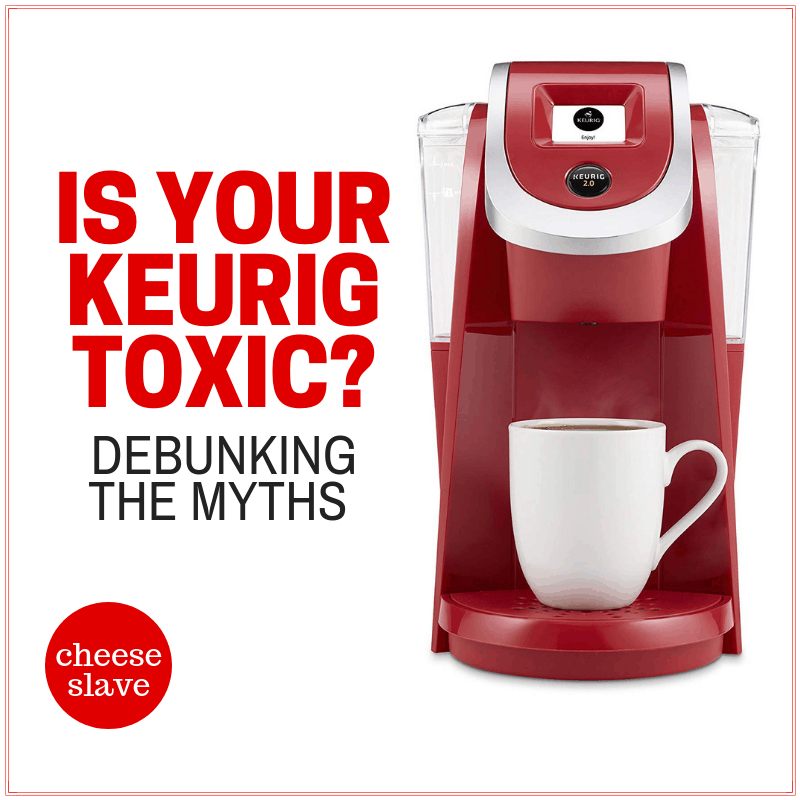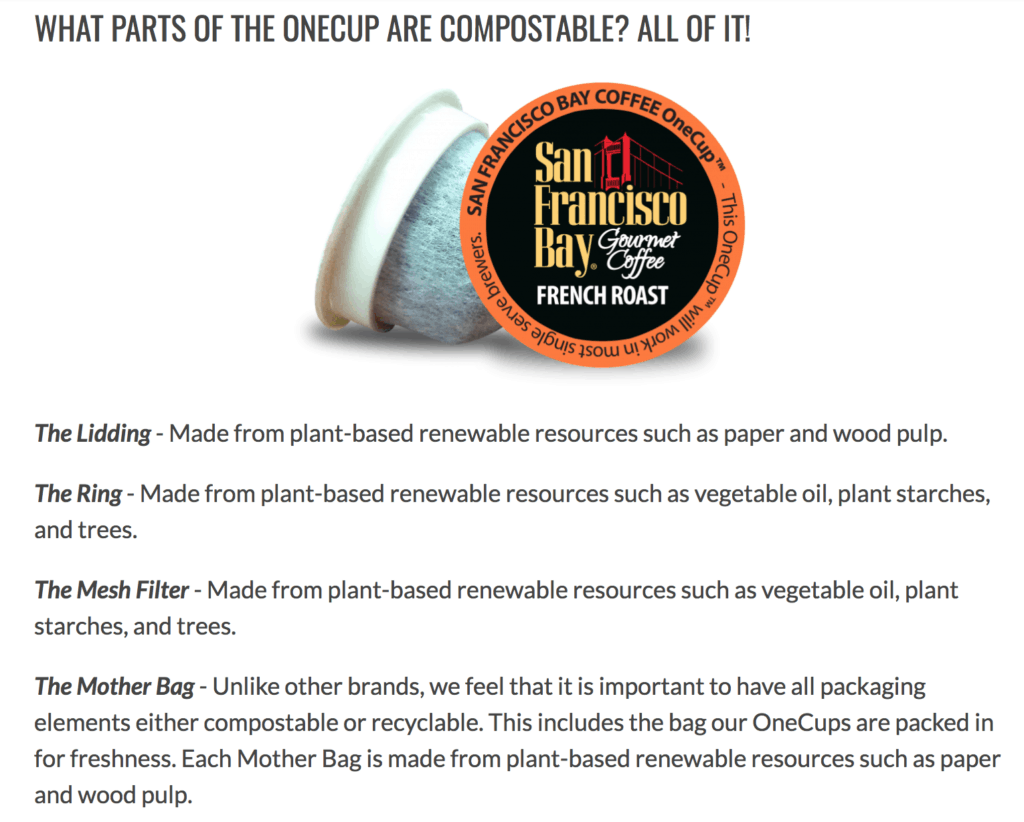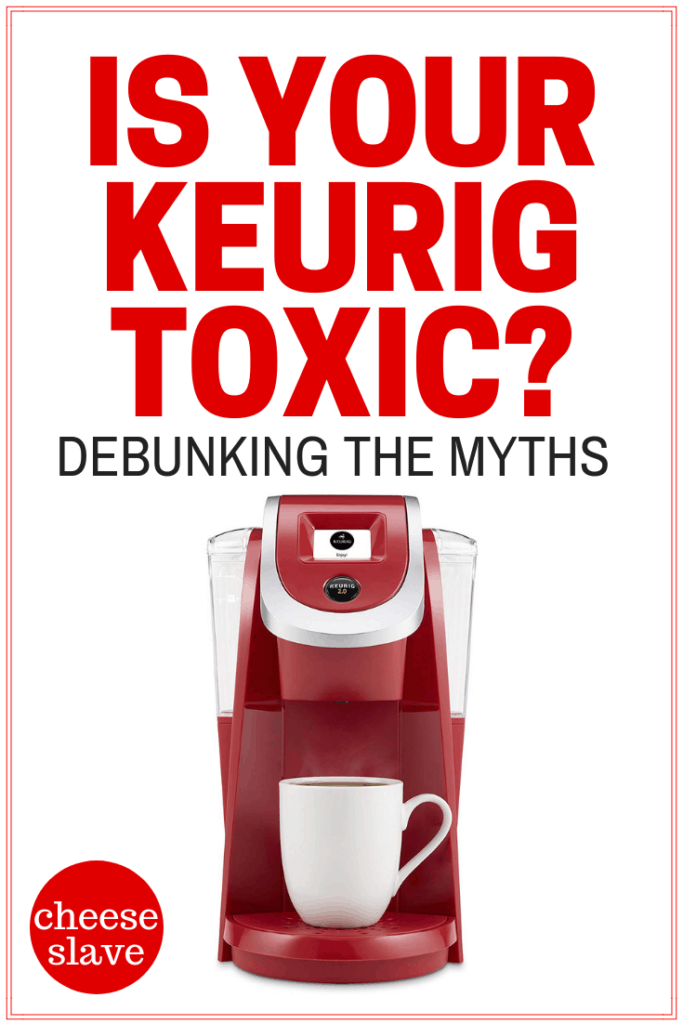Is Your Keurig Coffee Maker Toxic? Debunking the Myths
Is your Keurig toxic? It’s all over the internet: Keurig coffee makers are full of mold and bacteria, BPA plastic and other toxic stuff that will make you sick. But is it really true?

Is your Keurig toxic? It’s all over the internet: Keurig coffee makers are full of mold and bacteria, BPA plastic and other toxic stuff that will make you sick.
People are posting about toxic Keurig machines on Facebook, in YouTube videos, and on blogs.
But is it really true?
Is Your Keurig Toxic? Debunking the Myths About Keurig Coffee Makers
In this post, I’ll debunk the following internet myths that are being spread online:
- Keurig Coffee Makers are full of toxic mold and bacteria.
- Keurig Coffee Pods are all made with toxic BPA plastic.
- Keurig Coffee Pods are bad for the environment.
- You should throw away your toxic Keurig Coffee Maker and replace it with something “healthier”.

Myth #1: Keurig Coffee Makers are Full of Toxic Mold and Bacteria
Are Keurig Coffee Makers really full of mold and bacteria? You would think so if you watch videos on YouTube and Facebook. Here are some of the videos I watched that claimed that their Keurig Coffee Makers were full of toxic grime…
Okay, so if you watch that one above, the guy admits his machine is six years old. He takes it apart, and shows that there is some dirt in the tubing. I didn’t watch the whole thing… but how do we know he cleaned it?
Here’s another video of a guy who took his Keurig Coffee Maker apart, a machine he had for 3 years…
He says he cleaned his machine once a month the whole time he owned it. And guess what? No mold, no bacteria.
The are bunches of other videos like these on YouTube. Bottom line:
The fact is, unless you clean and descale your Keurig coffee machine on a regular basis, it will get dirty.
I also watched another video by another guy who took his Keurig apart… he said he never cleaned it and had it for 2 years. Perfectly clean inside.
I could post a bunch of those videos on here but you get the idea. Don’t take my word for it though — go search it up yourself.
All Coffee Makers Must Be Cleaned and Descaled
But here’s the dirty little secret that the guys on YouTube don’t tell you… this doesn’t just apply to Keurig Coffee Makers. This is true of all automatic coffee makers!
I remember growing up in the 1970s, my mom used to run vinegar and water through her Mr. Coffee machine at least once a month.
Do you know what they use to kill mold? That’s right, vinegar. So clean your Keurig properly and you won’t have any issues with mold or bacteria.
How to Clean Your Keurig Coffee Maker
Keurig recommends you clean your machine regularly and “descale” it with hot water and vinegar (or the “descaling solution” Keurig sells) every 3-6 months.
Cleaning Your Keurig
Here are Keurig’s instructions for how to clean your machine.
Descaling Your Keurig
Here are Keurig’s instructions for how to descale your machine.
Changing Your Keurig Filter
Keurig Water Filter Cartridges help remove chlorine from your water and should be changed every 2 months, or 60 tank refills. Keurig machines come with water filter cartridges but you can order more on Amazon. (They cost $4 a pop on the Keurig site — but only 83 cents on Amazon when you buy a dozen.)
Do You Really Need to Use the Keurig Descaling Solution or Can You Just Use Vinegar?
You’re probably wondering, what is the Keurig Descaling Solution and do I really need it? Or can I just use vinegar?
Keurig Descaling Solution is mostly citric acid, which helps to remove the mineral buildup in your coffee maker. Again, you’ll need to do this with any automatic coffee maker or espresso maker.
You can use vinegar, although it doesn’t work quite as well as the Keurig Descaling Solution.
According to this espresso expert on Quora, the Keurig Descaling Solution has certain ingredients which make it work better than vinegar.
Also, vinegar leaves an odor and taste… so if you want to skip that, and descale less frequently, just order the Keurig Descaling Solution (yes, you can get it on Amazon — this is the cheapest one I found that comes in a 2-pack).
The other reason to use the Keurig Descaling Solution is that it is NOT fun descaling a Keurig. It takes a while because you have to stand there holding the button down.
So I am going with the descaling solution because the last time I descaled my Keurig with vinegar it took a lot of hot water to get the vinegar taste out — can you say curdled milk? Blech!
Do How Often Do You Need to Descale Your Keurig Coffee Maker?
The harder your water is, the more often you will need to descale. For example, here in Los Angeles, we have pretty hard water. I remember in Las Vegas it was even worse — very hard water.
Here’s a simple test to help you determine how hard your water is.
They say to do it once every 3-6 months, or more often (perhaps every 1-3 months, if you have moderately to very hard water).
Myth #2: Keurig Coffee Makers Are All Made With Toxic BPA Plastic
I see a lot of bloggers spreading this nonsense and it’s just patently false.
I’ve been ordering these fully-compostable non-plastic (and therefore, no BPA) K-Cups with organic coffee inside for several years.
What are they made of? According to the San Francisco Bay Coffee company that makes these K-Cups, here’s what they are made of:
The Lidding – Made from plant-based renewable resources such as paper and wood pulp.
The Ring – Made from plant-based renewable resources such as vegetable oil, plant starches, and trees.
The Mesh Filter – Made from plant-based renewable resources such as vegetable oil, plant starches, and trees.
The Mother Bag – Unlike other brands, we feel that it is important to have all packaging elements either compostable or recyclable. This includes the bag our OneCups are packed in for freshness. Each Mother Bag is made from plant-based renewable resources such as paper and wood pulp.

Order on Amazon: compostable organic coffee K-Cups for your Keurig with no plastic and no BPA.
Myth #3: Keurig Coffee Makers are Bad For the Environment
When you order organic compostable K-Cups like I do, this is a non-issue.
Sure, people say it’s bad to order Keurig machines because they have to go in a landfill… but lots of things go in landfills.
Perhaps you should also not buy a TV or a computer… You see where I’m going with this…
Myth #4: You Should Throw Away Your Keurig Coffee Maker and Replace It With Something “Healthier”
So… should you throw away your Keurig coffee maker to stay healthy?
No! There is nothing “toxic” about Keurig coffee makers.
You can keep your Keurig… and replace it when it stops working properly.
Pin This Post: Is Your Keurig Toxic? Debunking the Myths About Keurig Coffee Makers




Comments ()